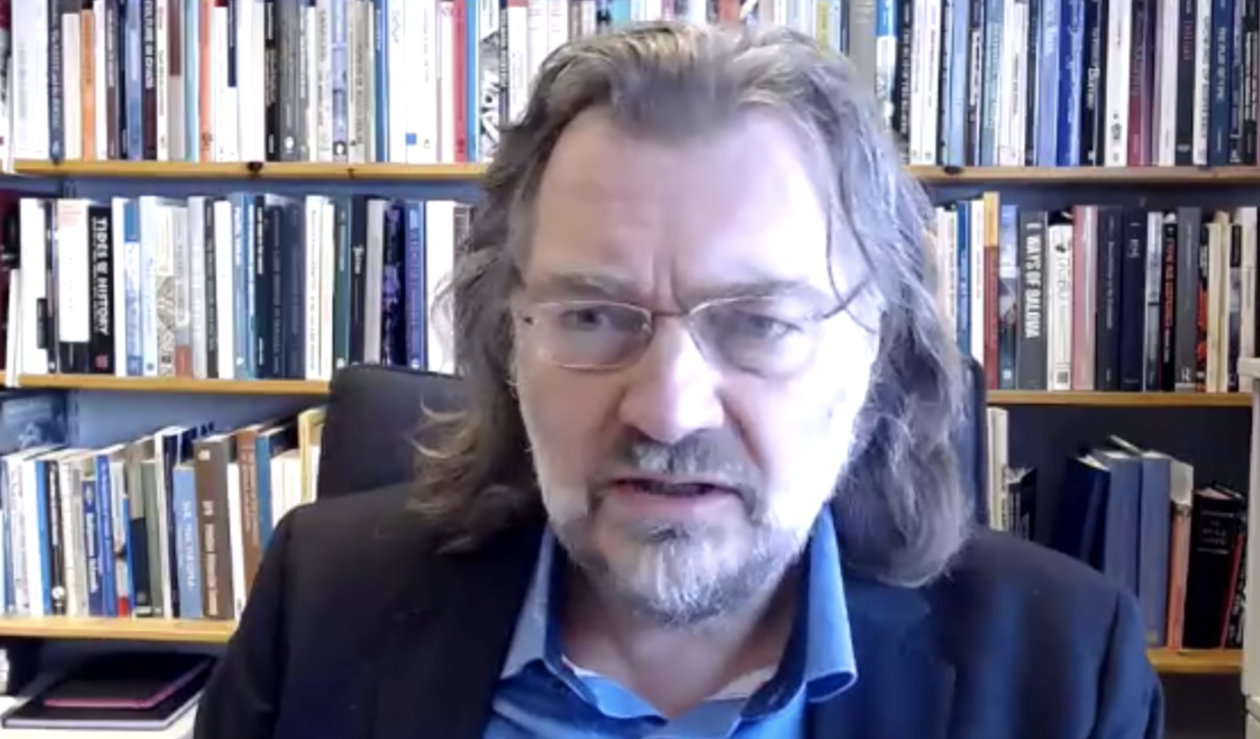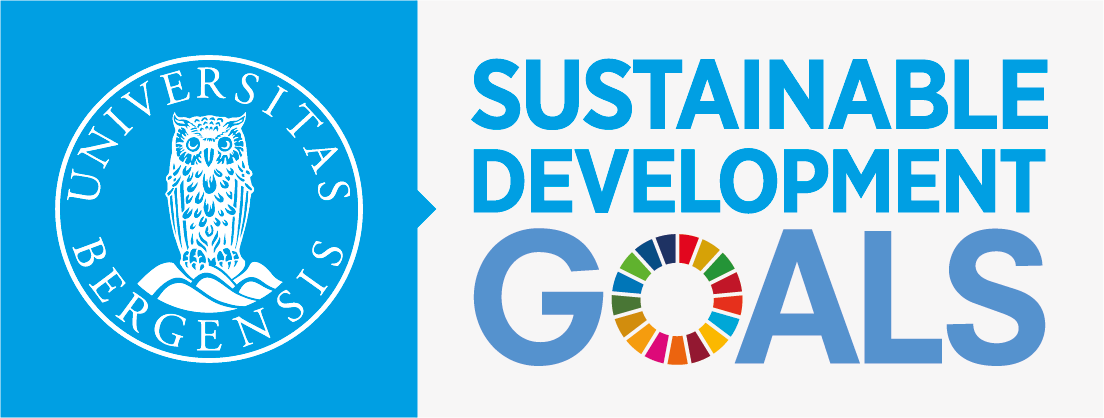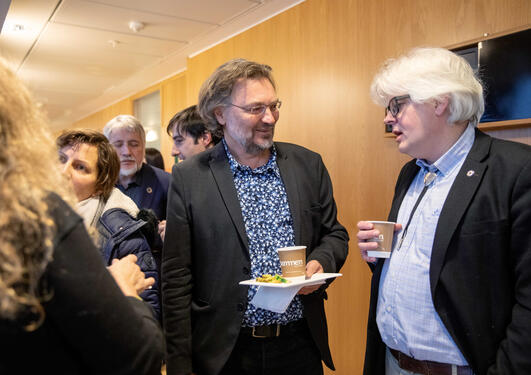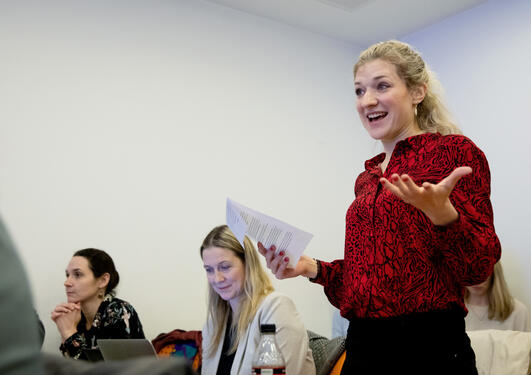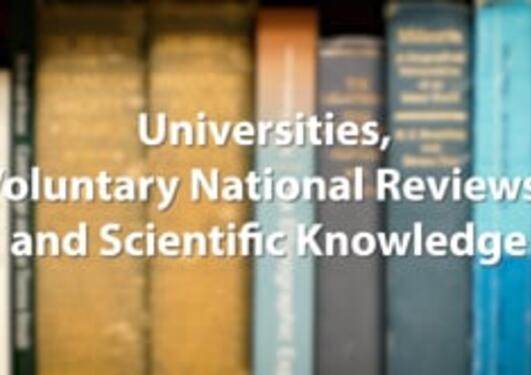Bringing science and knowledge to diplomacy
“Science is not negotiable, but it can be ignored,” said Professor Edvard Hviding in a debate on transboundary institutions at the S4D4C final networking meeting.

Main content
Hviding, who is also Scientific Director for the University of Bergen’s SDG Bergen Science Advice, was echoing a line first spoken by Micronesian youth leader Ms. Yolanda Joab Mori at the 2019 High-level Political Forum (HLPF) at the United Nations and elaborated upon by UN DESA’s Chief Shantanu Mukherjee at a side event co-arranged by the University of Bergen and the UN Missions of Norway, Fiji, St. Lucia and Palau at the same HLPF.
In March 2021, Hviding was speaking at the Horizon 2020 project S4D4C’s final networking meeting on Strengthening Science Diplomacy Transboundary Institutions.
Bringing together different forms of knowledge
Since the UN Ocean Conference in June 2017, the University of Bergen has built a repertoire of high-level side events in various UN forums, such as the HLPF and COP24 in Katowice, Poland. This comes in addition to the university’s own successful SDG Conference Bergen, an annual event bringing the university sector in direct dialogue with policy makers.
“In our side events, we have broadened the transboundary perspective by bridging the boundary between established science and local forms of knowledge. At all our side events from COP24 to HLPF 2019 to wherever, we have interacted with scientists and diplomats from Norway, the Pacific and the Caribbean,” Edvard Hviding said whilst underlining the ocean-climate-partnership nexus at the core of these side events.
“Bridging the boundary between established science and local forms of knowledge represent different forms of knowledge to inform the implementation of the 2030 Agenda,” he said.
Leading on ocean science diplomacy
He acknowledged that this had not come about as part of a masterplan, but rather was an intuitive and explorative process bringing together researchers and administrative support staff in a unique collaboration.
“SDG Bergen Science Advice had its beginnings at the 2017 Ocean Conference and worked out a number of connections at the UN simply by testing it out as we went along,” he said, ”from there we were offered a leadership role on SDG14 , Life Below Water. We have since set out on an ocean science diplomacy voyage, building more broadly on the university’s focus areas in marine sciences, climate research and global challenges.”
He was referring to the university’s appointment as SDG14 Hub for United Nations Academic Impact (UNAI) and as leader for the International Association of Universities (IAU) SDG14 Cluster. IAU is a UNESCO based outfit with a global outlook, with clusters which address each of the 17 SDGs.
Making use of global university networks
These university alliances represent another channel for science diplomacy and Hviding pointed to a session on the previous day of the S4D4C final networking meeting, where IAU’s Secretary-General Hilligje van’t Land had spoken on Bringing Universities (back) in Science Diplomacy.
“My good friend Hilligje van’t Land argued very well for higher education and research to engage with the 2030 Agenda. Bringing in two dimensions: one is the barrier of communications and the other is the exact opposite with the opportunities that exist,” said Hviding.
He pointed out that universities as such are not accredited to the UN system, but can work as science delegates for governments, and through accredited alliances such as IAU. Having himself worked at the UN as a delegate both for Norway and for Pacific island states, in particular on ocean governance, Hviding noted how the diversity of accumulated individual knowledge and experience represents an underused and underexplored part of science diplomacy.
Lessons for the European Green Deal
Professor Hviding also took a swipe at the EU’s European Green Deal, which has plenty of scope for improvement if it wants to reach a global audience outside of Europe.
“The European Green Deal would benefit from relating more concretely and consistently to the global scope of the UN 2030 Agenda,” he said.
In this respect he believes that science diplomats, both within and outside the EU, could learn from climate scientists and how they influence world politics by offering scientific advice.
“The science diplomacy channels need to be both localised and global. Both generate influence by creating new channels and also use established channels. Nothing compares to the UNFCCC climate channels and COP meetings,” Hviding suggested, “our friends in the climate sciences have unparalleled access to global decision making. We must learn from them to build global channels that bring in more scientific knowledge.”
